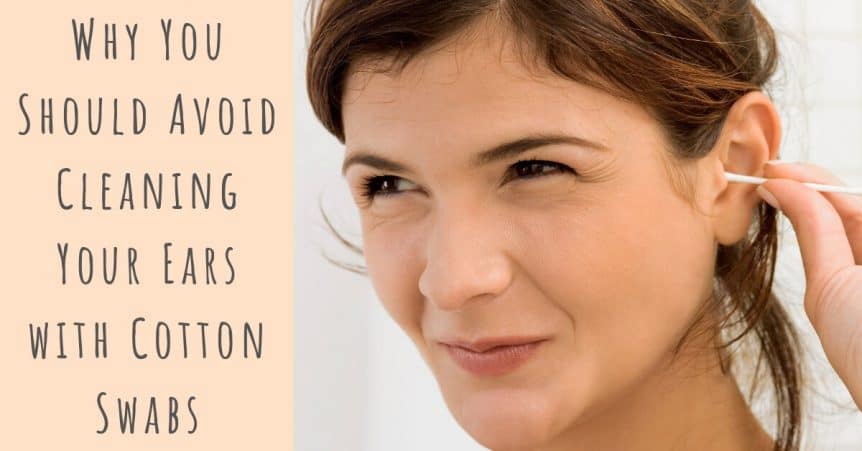- A Closer Look at Common Myths About Hearing Loss - May 7, 2024
- The Impact of Pets on Emotional and Hearing Health - April 26, 2024
- Strategies for Coping with Single-Sided Deafness - April 16, 2024
No one likes the feeling of plugged ears, and many people have the habit of cleaning their ears with cotton swabs. Put down that piece of cotton! Rather than cleaning out your ears, you could be doing a lot of damage to your ears. The American Academy of Otolaryngology strongly recommends that you don’t clean your ears with cotton swabs, and don’t clean them too often.
Don’t Use Cotton Swabs
If you’ve been cleaning your ears with cotton swabs, stop! Don’t put anything smaller than your elbow into your ears. When you use cotton swabs in your ears, you’re actually doing a lot more harm than good. Instead of cleaning out your ears and removing any excess earwax that’s loosened during your morning shower, you’re actually blocking your ears. When your ears are blocked with earwax, doctors call it cerumen impaction, and you might struggle to hear, feel like your ears are plugged, or even experience some pain or discomfort. Not only do cotton swabs, or anything else you stick in your ears, push the earwax further into your ears and block your ear canal, these objects can also damage your ear, poke the ear canal, or puncture the ear drum, causing major damage, extreme pain, and permanent hearing loss.
How Does Earwax Work?
Did you know that your ears are self-cleaning? While we might think that earwax is sticky and gross, it actually serves a vital purpose. It traps dirt, dust, or any other debris, and stops those particles from reaching the ear drum. Earwax keeps the ear from getting to dry, and protects the middle ear from damage, keeping your ears clean. When the earwax in your ear has trapped dirt or dust, it dries out. As you chew or move your jaw, this dried earwax slowly gets pushed further out, hardens, and falls out of the ears or gets washed away in the shower.
That’s why cleaning your ears with cotton swabs can cause a lot of problems. This old, dried wax will actually get pushed further into the ear, and won’t come out of the ears. “It is a strong reminder to patients that ear health starts with them,” explains Seth Schwartz from the American Academy of Otolaryngology, “and there are many things they should do as well as many things that they should stop doing immediately to prevent damage to their ears.”
Why Do You Ears Get Plugged?
Sometimes, earwax doesn’t work as well as it should. Unnatural earwax buildup is a problem for around 1 in 10 children, 1 in 20 adults, and becomes more common again in seniors. When the ear produces too much earwax, it isn’t able to naturally clean itself. If you’ve noticed a build up of earwax, or have had trouble hearing, visit your doctor right away. They can flush your ear with water, naturally cleaning out all the built-up earwax without pushing it into the ear canal or causing problems.
“Patients often think that they are preventing earwax from building up by cleaning out their ears with cotton swabs, paper clips, ear candles, or any number of unimaginable things that people put in their ears,” Schwartz explains. “The problem is that this effort to eliminate earwax is only creating further issues because the earwax is just getting pushed down and impacted further into the ear canal.”
When to Get Your Ears Checked
If you’re experiencing any pain or discomfort in your ears, visit a doctor right away. Have you been struggling to hear recently, or been experiencing tinnitus, that annoying ringing or buzzing in your ears? While this could be a sign of hearing loss, it could also point to a build up of earwax, and a simple cleaning could solve your problems.
New Leaf Hearing Clinic
If you’ve noticed any changes to your hearing health, or think you might have a buildup of earwax, visit us today at New Leaf Hearing Clinic for a comprehensive hearing test. We’ll test your hearing ability, as well as performing a visual exam to check for earwax. If you have hearing loss, we’ll work with you to find the perfect hearing device to help you hear in every listening environment.

